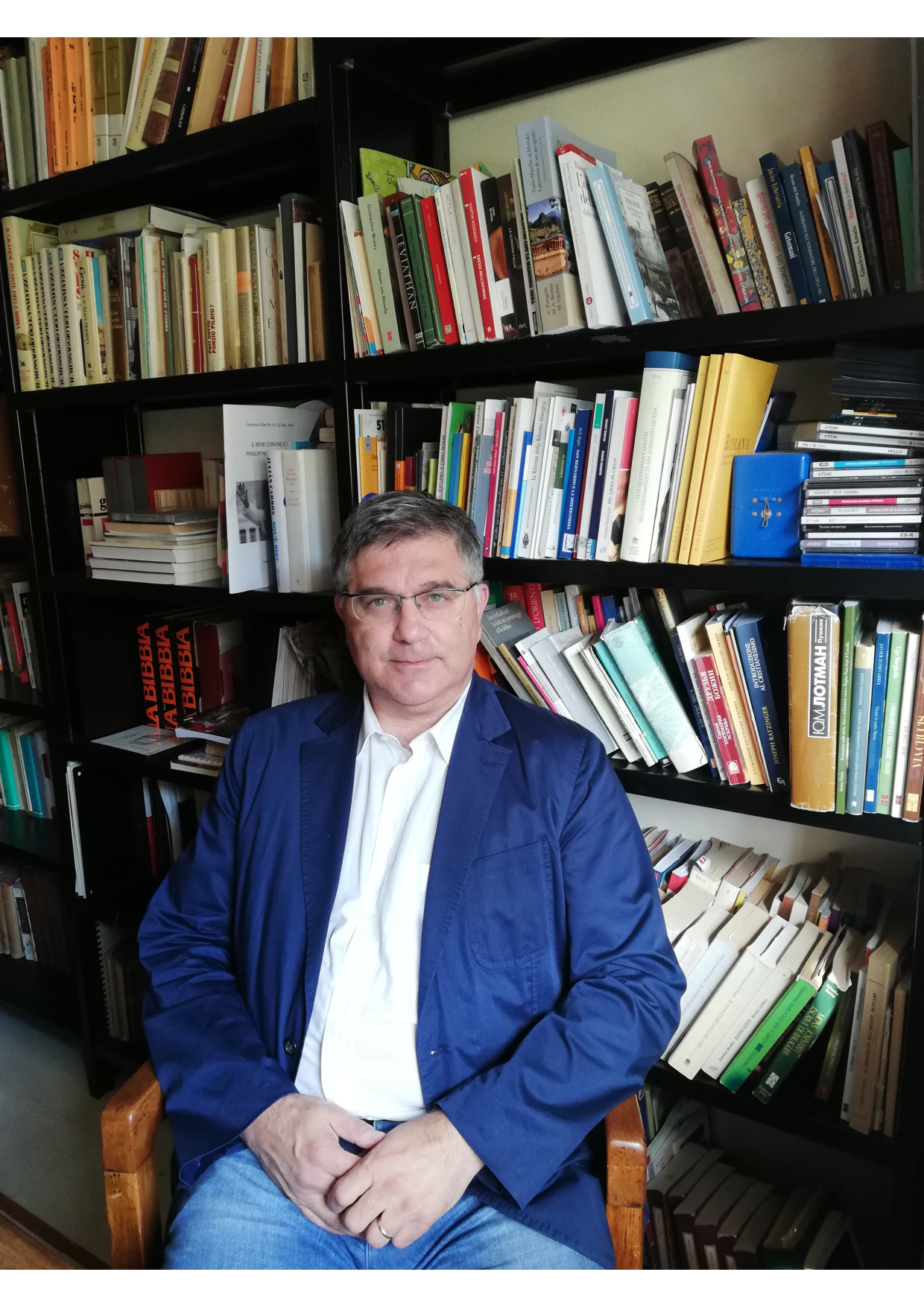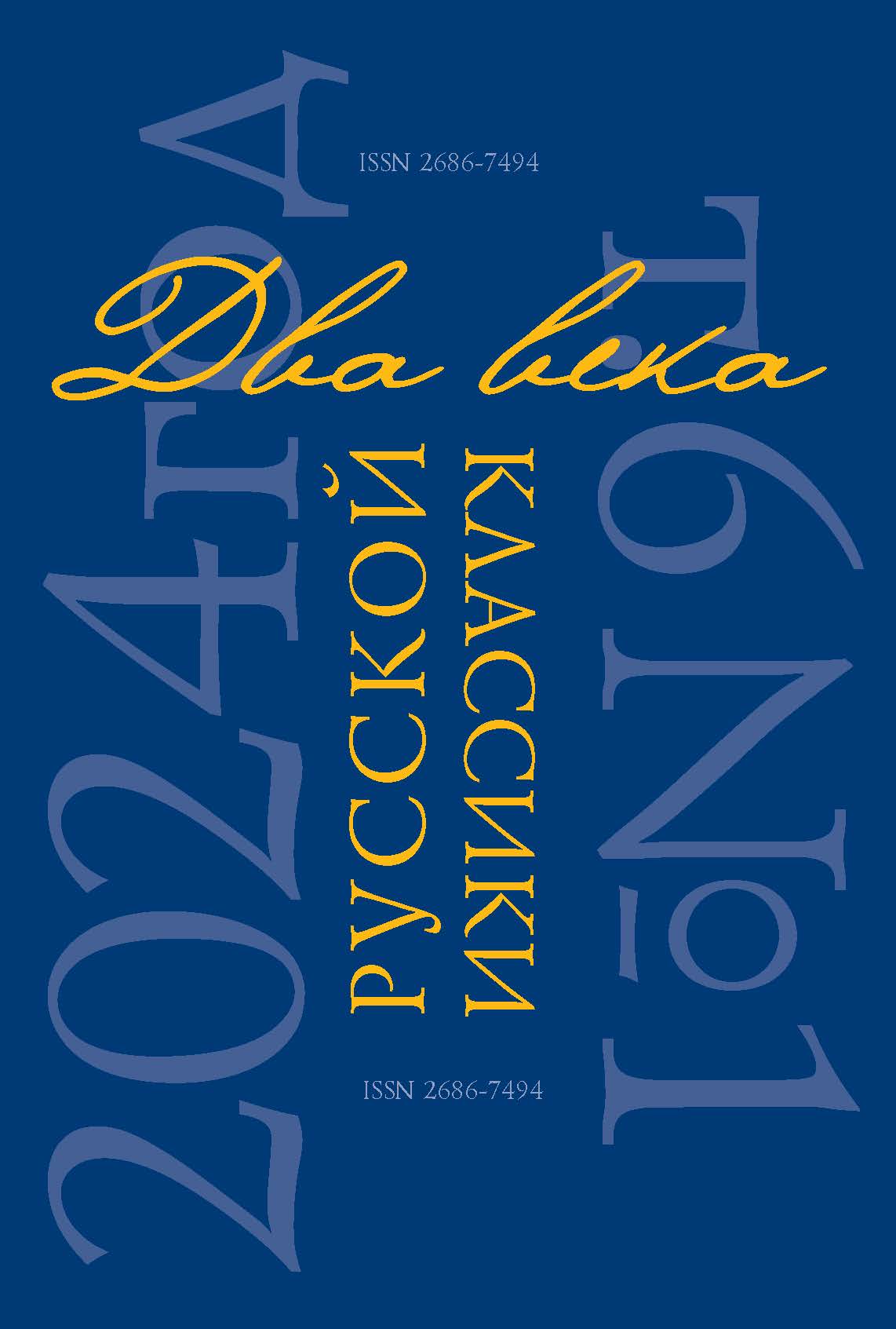
Professor of Slavic Studies at the University of Urbino, member of the Italian Association of Slavists, President of the Cultural Association “International Meetings of Diego Fabbri”, University of Carlo Bo, Via Santa Maria, Urbino, Italy
E-mail: This email address is being protected from spambots. You need JavaScript enabled to view it.
ORCID ID: https://orcid.org/0000-0001-6705-8707
Education:
Graduated from the Faculty of Foreign Languages (Russian and English) at the University of Bologna in 1986.
Scientific and organisational activities:
Member of the Italian Association of Slavists.
Coordinator in the field of investigations of 19th-century Russian literature for the journal “Russica Romana”.
President of the foundation “International University Residences”.
Member of the editorial board of Gorky IWL RAS scientific journal “Two Centuries of the Russian Classics”
Member of the editorial board of the journal “Language and Text”.
Member of the editorial board of the journal “Byzantinistics. Journal of Byzantine and Slavic Studies”
Awards:
Honorary scholarship holder at the Institute for Research in the Humanities, University of Wisconsin, Madison, 1997–1998.
Selected scientific publications:
Author of over 70 scholarly articles and 5 books. Recently, a new translation of “Eugene Onegin” has been completed, in order to transfer the iambic rhythm of the original to the Italian language.
Monographs
- Anime russe. Turgenev, Tolstoj, Dostoevskij. L'uomo nell'uomo (The man in the man). Milano, Edizioni Ares Publ., 2014. 278 p. (In Italian).
- Tradurre l’Onegin (Translating “Onegin”). Urbino, Quattroventi Publ., 2003. 168 p. (In Italian).
- La Scrittura e la steppa. Esegesi figurale e cultura russa (Scripture and the steppe. Figural exegesis and Russian culture). Urbino, Quattroventi Publ., 1999. 204 p. (In Italian).
- Un testo “sapienziale” nella Rus' kieviana. Il Poučenie di Vladimir Monomach (A “sapiential” text in Kievan Rus'. “The Instruction” by Vladimir Monomakh). Bologna, Patron Publ., 1990. 108 p. (In Italian).
Executive editor
Russian literature in the Russian-Italian dialogue of the 21st century: textual criticism, poetics, translations, responsible eds. M. I. Shcherbakova, G. Genya. Moscow, IWL RAS Publ., 2020. 336 p.
Articles
- Struggle with the angel, or a rhythmic translation of “Eugene Onegin”. In Russian literature in the Russian-Italian dialogue of the 21st century: textual criticism, poetics, translations, responsible, eds. M. I. Shcherbakova, G. Genya. Moscow, IWL RAS Publ., 2020, pp. 14–37. (In Russ.).
- Solženicyn and Wisdom. Studi Slavistici, vol. XVI, 2019(1), pp. 35–47. DOI https://doi.org/10.13128/Studi_Slavis-24520 (In Italian).
- A translator cannot help being a textualist. On the translation of the short stories by young Anton Chekhov's. Language and Text, vol. 4, no. 3, 2017, pp. 12–19. DOI https://doi.org/10.17759/langt.2017040302 (In Russ.).
- Judas forgiven. Vasily Grossman’s last Meditation on Guilt. In Grossman Studies. The legacy of a contemporary classic. Milan, Educatt Publ., 2016, pp. 362–376. (In Italian).
- The theme of repentance in the works by Leo Tolstoy and Fyodor Dostoevsky. From the magical ring of the “Self” to repentance as a divine manifestation. In Kesarevo Kesarju. Writings in honour of Cesare G. De Michelis, a cura di M. Ciccarini, N. Marcialis, G. Ziffer, Firenze, Firenze University Press, 2014, pp. 175–185. (In Russ.).
- Viaggi iniziatici tra mito e letteratura: Čechov e Bunin, in: Linee di Confine. Separazioni e processi di integrazione nello spazio culturale slavo, a cura di G. Moracci e A. Alberti. Initiatic journeys between myth and literature: Anton Chekhov and Ivan Bunin. In Border Lines. Separations and integration processes in the Slavic cultural space, edited by G. Moracci and A. Alberti. Firenze, Firenze University Press, 2013, pp. 149–164. (In Italian).
- Il pentimento in Tolstoj e Dostoevskij. Dal cerchio magico dell'Io al bisogno di perdono (Repentance in Leo Tolstoy and Fyodor Dostoevsky. From the magic circle of the ego to the need for forgiveness). In “Linguæ &”, no. 2, 2013, pp. 67–91. http://www.ledonline.it/linguae/allegati/linguae1302ghini.pdf (In Italian).
- Bakhtin’s Carnival as a Gnostic Chronotope. Toronto Slavic Quarterly. no. 39, 2012. URL: http://www.utoronto.ca/tsq/39/index.shtml (In Italian).
- The Metric Equivalent in Poggioli’s “Rhythmic Versions” from Pushkin, Tjutchev, Pasternak, and Akhmatova. In Renato Poggioli. An Intellectual Biography, edited by R. Ludovico, L. Pertile, M. Riva, Firenze, Olschki, 2012, pp. 89–101. (In Italian).
- G. Ghini, Le api di Tolstoj, ovvero la storia non ha senso, in Le api tra realtà scientifica e rappresentazione letteraria e artistica. Atti del convegno di studi (Tolstoy's Bees, or History doesn't make sense, in The Bees between scientific reality and literary and artistic representation. Proceedings of the study conference) (Urbino, 28 e 29 ottobre 2009), München, Meidenbauer Publ., 2011, pp. 173–187. (In Italian).
- Quando si rasserena di Boris L. Pasternak: versione ritmica. In Leggere il tempo e lo spazio. Studi in onore di Giovanni Bogliolo (“When the Weather Clears” by Boris L. Pasternak: rhythmic version. In Reading Time and Space. Studies in honour of Giovanni Bogliolo, München, Meidenbauer Publ., 2011, pp. 137–145. (In Italian).
- Fusione senza confusione, Il rapporto singolo-collettività in Vita e destino, in: L’umano nell’uomo. Vasilij Grossman tra ideologie e domande eterne, a cura di Pietro Tosco, Soneria Mannelli, Rubbettino. Fusion without confusion, The individual-collectivity relationship in Life and Fate. In The Human in Man. Vasily Grossman between ideologies and eternal questions, edited by Pietro Tosco, Soneria Mannelli, Rubbettino, 2011, pp. 231–242. (In Italian).
- Un inedito di Diego Fabbri da un romanzo umoristico di Dostoevskij. Rivista di letteratura italiana An unpublished work by Diego Fabbri from a humorous novel by Fyodor Dostoevsky. Journal of the Italian Literature, XXVIII, no. 1, 2010, pp. 137–164. (In Italian).
- Praz, Lo Gatto e il fascismo. Linguæ &, no. 2, 2008, pp. 13–40. URL: http://www.ledonline.it/linguae/ (In Italian).
- L’arcitesto antologico. Linguæ &, no. 2, 2008, pp. 133–140. URL: http://www.ledonline.it/linguae (In Italian).
- La poesia, infine... Appunti su Zveteremich traduttore. In Pietro A. Zveteremich. L’uomo, lo slavista, l’intellettuale. Atti del Convegno di studi. Poetry, finally... Notes on Zveteremich translator, in: Pietro Antonio Zveteremich. The man, the Slavist, the intellectual. Proceedings of the Study Conference, Messina, 18 aprile 2008, Messina, Università degli studi (University of Applied Sciences) di Messina, 2009, pp. 87–108. (In Italian).
- The Russian “figure” (on the setting of the question). In The Gospel text in Russian literature of the 18th–20th centuries. Issue 2. Petrozavodsk, Petrozavodsk State University Publ., 1998, pp. 54–60. (In Russ.).
- The housekeeping accounts and the end of the world. Gogol'’s Selected passages from the correspondence with friends between Wisdom and the Apocalyptic. Russica Romana, no. 3, 1996, pp. 107–144. (In Italian).
Teaching activities:
Professor of Slavic Studies of School of Foreign Languages and Literatures, Department of Communication Studies, International Humanities of the University of Urbino “Carlo Bo”.









